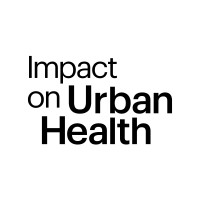01 March 2021
Food Foundation Release New Report Showing Pandemic Effect on Food Insecurity Remains a Crisis
#ENDCHILDFOODPOVERTY CAMPAIGN
- New Report from the Food Foundation, released as part of the #EndChildFoodPoverty campaign spearheaded by Marcus Rashford, provides further evidence that the pandemic has had a devastating impact on the UK’s most vulnerable populations and that the problem of household food insecurity continues to be at crisis levels.
- The report urges Government to make food security a priority in recovery planning and move away from short-term solutions, food banks and emergency food aid.
- The Food Foundation will be reporting its latest findings during a webinar on Tuesday 9 March at 10am.
Headline Statistics
- Food insecurity remains higher than pre-Covid levels affecting an estimated 4.7 million adults (9% of households) over the last six months. This compares to pre-Covid levels of 7.6%.
- 55% of those experiencing food insecurity (an estimated 2.5 million adults) said it was because they did not have enough money for food, 31% said it was due to isolation, 23% said it was lack of access and supply and 8% cited other reasons in the last six months.
- Despite Government’s financial support schemes and the Universal Credit £20 uplift, 22% of households have experienced a drop in income since Feb 2020.
- Households with children have higher levels of food insecurity compared to those without. An estimated 2.3 million children live in households that have experienced food insecurity in the past 6 months (12% of households with children).
- The situation is even worse in households with children on Free School Meals. 41% have reported food insecurity in the past 6 months.
Reasons for Food Insecurity Reported by Children
Since Christmas, 20% of children aged 8-17 (over 1.5 million) reported some form of food insecurity (mild, moderate or severe). This has not improved since the summer holidays when18% of children reported food insecurity.
- 5% (410,000) said they were hungry but didn’t eat because didn’t want to use up food in the house.
- 5% (360,000) said they didn’t eat because we didn’t have enough food in the house.
- 6% (500,000) said their parents didn’t eat because of not having enough food to go around.
- 9% (660,000) said they had to eat less and make food last longer because of lack of money.
- 5% (370,000) said they sometimes didn’t eat proper meals because of not having enough money to buy more food.
- 4% (320,000) said they sometimes ate at friend’s houses because we didn’t have enough food in the house.
- (*percentages rounded)
Food Banks
- Nearly 1 million children (13%) aged 8-17 years reported that either they or their family had visited a food bank since early December 2020. This has risen by two percentage points since the summer holidays (11%).
- The proportion of children on Free School Meals who said they or their families had visited a food bank (32%) was 10 times higher than those not on Free School Meals (3%).
Food Sector Workers
- In the past 6 months, 14% of food sector workers experienced food insecurity compared with 9% of non-food sector workers.
- The Living Wage Foundation reported that 45% of supermarket workers earn less than the Real Living Wage (which currently stands at £9.50 per hour in the UK outside of London and £10.85 per hour in London).
Stigma and Poverty
- A fifth (19%) of food insecure adults are still struggling to find the help they need.
- 42% of food insecure adults didn't try to get help because they didn't want to ask for help (41%), didn't know where to go (27%) or they'd feel bad asking (42%).
BAME Communities
- Compared to white ethnicities, BAME households have consistently been twice as likely to be food insecure. Data in January showed 20% of BAME households have experienced food insecurity in the last six months compared to 9% of white British households.
Disability and Health Problems
- At the start of the pandemic, adults identifying as being limited a lot by health problems or a disability were three times more likely to be food insecure than those without. These inequalities have increased even further. In January, they were five times more likely than those without.
Food Foundation Recommendation’s
The new report urges Government to make food security a priority to ensure the long-term health and resilience of the nation. We must move away from short-term solutions, food banks and emergency food aid, recognise that poverty is a root cause, and prioritise policies that will address the underlying causes.
The 3 key recommendations in the report are:
- An urgent review of Free School Meals: prioritising ensuring the eligibility threshold does not exclude any disadvantaged children from accessing a healthy meal.
- Businesses should pay at least the Real Living Wage and the Government should make the £20 Universal credit uplift permanent.
- Designate authority in Government to be responsible for monitoring and tackling food insecurity.
The Full Report ‘Crisis Within a Crisis’ can be found on the Food Foundation’s website
Quotes
Emma Thompson, Ambassador Children’s Right2Food Campaign said “In the sixth richest economy in the world these figures speak for themselves. There is absolutely no need for any child to go hungry in the UK. The fact that they are and in increasing numbers suggests cracks in a broken food system that can and must be repaired as a matter of the utmost urgency. Apart from the moral duty we owe to children, this is a severe public health problem.”
Anna Taylor, Executive Director of Food Foundation said: “We should now move to a longer-term package of support for food insecure households and away from emergency measures. Making the £20 uplift to Universal credit permanent is a vital part of this package, as is extending Free School Meals to all children in food insecure households. The long-term effects of food insecurity on mental and physical health mean that children can’t wait.”
Editors' Notes
Available for Interview:
- Anna Taylor OBE, Executive Director of Food Foundation
For all enquiries, please contact:
- Jo Ralling – 07770 500858 / jo.ralling@foodfoundation.org.uk
Data Sources:
Population calculations made by the Food Foundation using 2019 mid-year population estimates (see Appendix 2 of report).
All figures, unless otherwise stated, are from:
- YouGov Plc. Total sample size was 4,231 UK households. Fieldwork, was undertaken between 29 January - 2 February 2021. The survey was carried out online. The figures have been weighted and are representative of all UK adults 18+
- Childwise. Total sample size 1,308 7-17 year olds across the UK (7 year-olds in Year 2 excluded.) Fieldwork was undertaken between 22 January – 2 February.
Comparable adult one-month/ six-month food insecurity levels were 3.8%/7.6% in the Food Standards Agency’s Food and You survey, 2018. Comparable 30-day/6-month food insecurity level for households with children was 5.7%/ 11.5% in the Food and You, 2018
Social Media
- Twitter: @Food_Foundation
- #EndChildFoodPoverty
- #Right2Food
About the Food Foundation
The Food Foundation is a charity working to influence food policy and business practice, shaping a sustainable food system which makes healthy diets affordable and accessible for all. We work in partnership with researchers, campaigners, community bodies, industry, investors, government and citizens to galvanise the UK’s diverse agents of change, using surprising and inventive ideas to drive fundamental shifts in our food system. These efforts are based on the continual re-evaluation of opportunities for action, building and synthesising strong evidence, convening powerful coalitions, harnessing citizens’ voices and delivering impactful communications.
Registered Charity Number: 1187611
About the Child Food Poverty Task Force
Formed by footballer Marcus Rashford, the Child Food Poverty Task Force is a group of businesses and charities who, over the coming weeks, will dedicate their platforms to sharing real stories of those most affected by child food insecurity in the UK, supported by real-time statistics. The task force includes Aldi, Asda, Co-Op, Deliveroo, The Food Foundation, Fareshare, Iceland, Kellogg's, Lidl, Marcus Rashford, Tesco, Sainsbury's and Waitrose & Partners.







